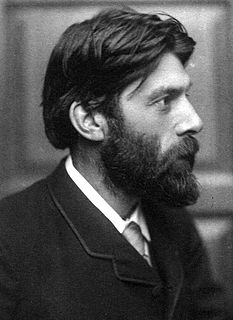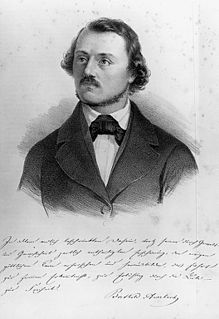A Quote by Robert Bridges
There is a hill beside the silver Thames, Shady with birch and beech and odorous pine; And brilliant underfoot with thousand gems, Steeply the thickets to his floods decline.
Related Quotes
The ideal job letter starts with a brilliant light. Then we realize that this brilliant light is actually sunlight, shafts of it, pouring through trees onto a thick bed of pine needles. Soft dusty resin floats in the sun shafts, invitingly. The smell of pine and sap rises from the forest floor. A twig snaps underfoot.
She looked at a silver birch: it would have a soft, showery voice and would look like a slender girl, with hair blown all about her face and fond of dancing. She looked at the oak: he would be a wizened, but hearty, old man with a frizzled beard and warts on his fact and hands, with hair growing out of the warts. She looked at the beech under which she was standing. Ah! --she would be the best of all. She would be a gracious goddess, smooth and stately, the Lady of the Wood.
In Paul Friedrich's book Proto-Indo-European Trees he identifies the "semantic primitives" of the Indo-European tribe of languages through a group of words that have not changed much through twelve thousand years - and those are tree names: especially birch, willow, adler, elm, ash, apple and beech (bher, wyt, alysos, ulmo, os, abul, bhago). Seed syllables, bija, of the life of the west.
Much can they praise the trees so straight and high, The sailing pine,the cedar proud and tall, The vine-prop elm, the poplar never dry, The builder oak, sole king of forests all, The aspin good for staves, the cypress funeral, The laurel, meed of mighty conquerors And poets sage, the fir that weepest still, The yew obedient to the bender's will, The birch for shafts, the sallow for the mill, The myrrh sweet-bleeding in the bitter wound, The warlike beech, the ash for nothing ill, The fruitful olive, and the platane round, The carver holm, the maple seldom inward sound.
In a true you-and-I relationship, we are present mindfully, nonintrusively, the way we are present with things in nature.We do not tell a birch tree it should be more like an elm. We face it with no agenda, only an appreciation that becomes participation: 'I love looking at this birch' becomes 'I am this birch' and then 'I and this birch are opening to a mystery that transcends and holds us both.
All the world lies warm in one heart, yet the Sierra seems to get more light than other mountains. The weather is mostly sunshine embellished with magnificent storms, and nearly everything shines from base to summit - the rocks, streams, lakes, glaciers, irised falls, and the forests of silver fir and silver pine.
No, the last thing she cared about was whether people were staring at the boy and girl kissing by the river, as London, it's cities and towers and churches and bridges and streets, circled all about them like the memory of a dream. And if the Thames that ran beside them, sure and silver in the afternoon light, recalled a night long ago when the moon shone as brightly as a shilling on this same boy and girl, or if the stones of Blackfriars knew the tread of their feet and thought to themselves: At last, the wheel comes to a full circle, they kept their silence.
Mahomet made the people believe that he would call a hill to him, and from the top of it offer up his prayers for the observers of his law. The people assembled: Mahomet called the hill to come to him again and again; and when the hill stood still, he was never a whit abashed, but said, 'If the hill will not come to Mahomet, Mahomet will go to the hill.'







































